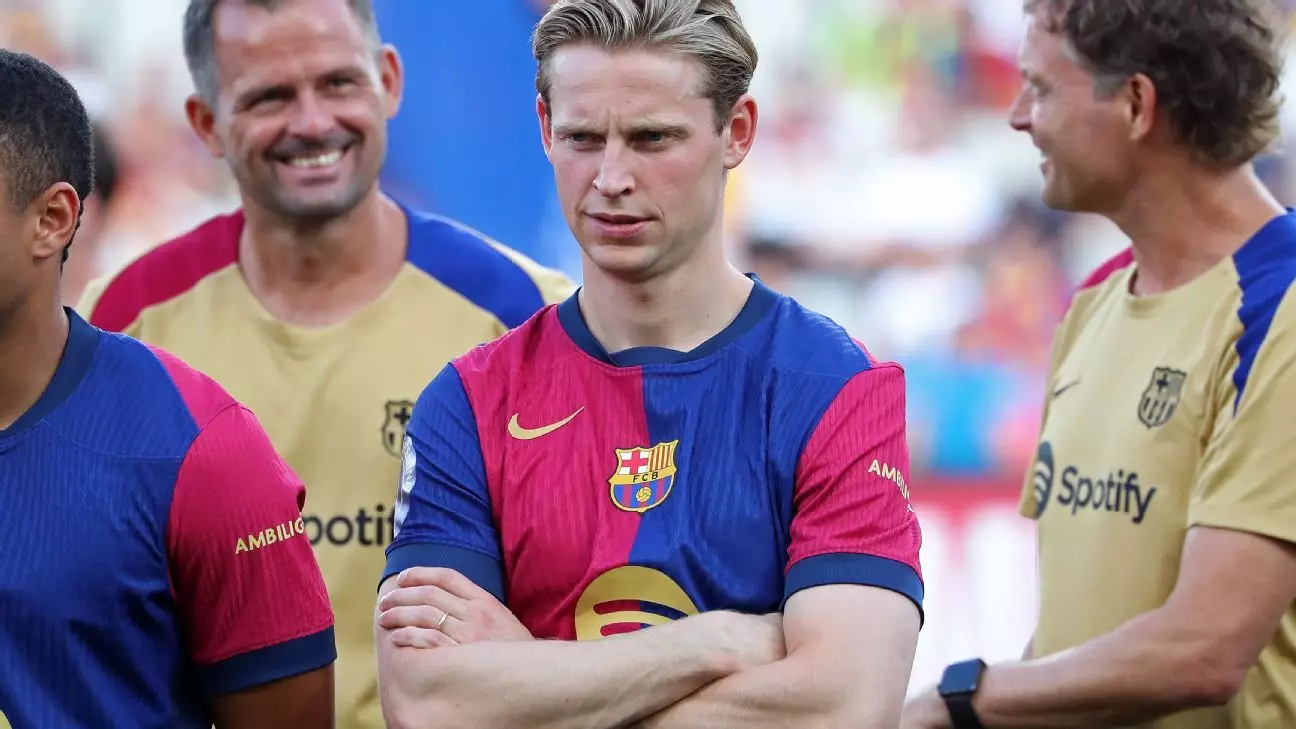Frenkie de Jong, the talented midfielder for FC Barcelona, has recently opened up about the significant mental and emotional challenges he has faced due to a series of ankle injuries. This acknowledgment sheds light on the often-overlooked psychological aspects of professional sports, particularly how injuries can affect an athlete’s mindset. De Jong has had a tumultuous year, suffering three separate ankle injuries, the last of which left him sidelined since April 2023. During this period, he was unable to participate in crucial tournaments, including the UEFA European Championship with the Netherlands and the start of the new season with his club.
In a candid interview, de Jong expressed how the inability to play football—a sport he describes as his “life” and “passion”—has been profoundly difficult for him. This aligns with a broader understanding within sports psychology that injuries do not only impede physical performance but also inflict cognitive and emotional distress. The concept of “mental trauma” that de Jong referenced indicates the more complex consequences of being unable to perform at one’s peak.
Rumors surrounding de Jong’s injury and financial situation have circulated during his recovery. Notably, claims that he declined to undergo surgery and reports suggesting he earns €37 million annually have sparked criticism from fans and pundits alike. De Jong’s response was a clear attempt to set the record straight, emphasizing that the decision regarding surgery involved agreement from him and the club’s medical staff, who collectively felt that surgery was not the most prudent choice at that moment.
His denial of the exorbitant salary figure serves as a reminder of the complexities surrounding player contracts and the narratives often spun around them. De Jong clarified that while he has deferred wages during the COVID-19 pandemic—part of a broader strategy to help the club financially—his actual earnings do not match the sensational numbers being reported. This not only counters the negative perception he has encountered but also highlights the importance of accurately portraying athletes in the media.
De Jong’s determination to return from injury showcases the resilience typical of elite athletes. Following a five-month hiatus, he has been back in training and appears to be nearing a return to the pitch. Such comebacks, while physically demanding, also pose significant mental challenges. Athletes must often rebuild their confidence, especially after suffering repeated injuries that target specific areas of their bodies.
His outlook emphasizes the resolve necessary for an athlete: De Jong stated he is “gradually regaining my confidence” to engage fully in a contact sport like football. This statement not only speaks to his personal recovery journey but also reflects the universal struggle athletes face when overcoming setbacks. The mental preparation to engage in tackles and challenge for the ball again weighs heavily on any player’s psyche.
As FC Barcelona strives to maintain its position at the top of La Liga, the potential return of de Jong before the rigorous schedule of matches in October is promising for the team. With upcoming fixtures against formidable opponents like Sevilla and Bayern Munich, the squad will require synchronized teamwork and the return of key players to navigate this challenging stretch of the season successfully.
Moreover, de Jong’s current contract, set to expire in the summer of 2026, puts him in a vital position concerning his future with the club. His journey of persistence and dedication may lead to further opportunities not only in establishing his legacy at Barcelona but also in solidifying a prominent role in international football once he’s back in full fitness.
Frenkie de Jong’s experiences remind us that behind the glamorous façade of professional sports lie real human emotions and challenges. His journey serves as a powerful testament to resilience, the complexities of injury, and the critical need for understanding in the world of athletics.
